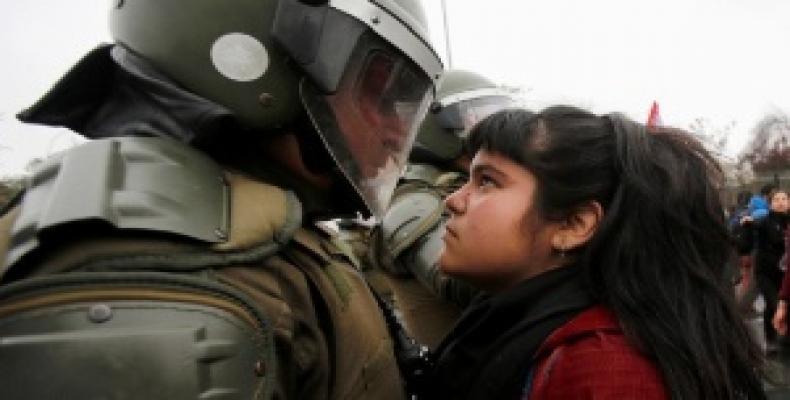Santiago de Chile, January 14 (RHC)-- Chile's Minister of Justice and Human Rights Hernan Larrain has revealed in an interview with the newspaper "El Mercurio" that the government is working on a bill to regulate the right to assembly.
According to Larrain, this "is a complex issue" and work is being done with the legal community, including the director of the Human Rights National Institute (HRNT) to provide good legislation. On the matter, he clarified that the right to assembly is linked to other rights and permissions, including free expression and demonstration.
For this reason, "the right to protest as such, is not strictly regulated in the conventions." The Minister also explained that the proposal is going to be debated in the human rights agenda for this year since it must enter Congress during the first half of 2020.
According to Larrain, another detail to be clarified is the difference between marching, mobilizing and "public demonstration." That way we will know better "how to regulate the right to assembly without preventing the exercise of others similar rights, and at the same time how to justify the possible causes of denial."
The minister's words come after the Metropolitan Council initiated a strategy of "police takeover" in the Plaza Baquedano sector. As a result, the demonstrators denounced significant repression and obstruction of the right to assembly and protest, both of them stated in the Constitution.
The new law comes as massive demonstrations against the Chilean government began in Santiago on October 14th due to a 30-cent increase in the subway fare. While this measure was revoked by Piñera, social unrest increased in magnitude as the Chileans began to question "30 years" of neoliberal policies, which have implied a systematic withdrawal of economic and social rights for millions of people.
Since the start, the response of the security forces has been internationally condemned for its blatant disregard of human rights. Currently, prosecutors are investigating at least 26 deaths in the context of the crisis, including killings by the military and police forces.
The NHRI has visited thousands of protesters and bystanders who have been hospitalized, including more than 350 with eye injuries caused largely by police bullets.
In December, the country's National Institute of Human Rights (NHRI) warned that the repression of ongoing protests in Chile has resulted in the most serious human rights violations in 30 years since the country was ruled by the military dictatorship.
According to the director of the country's official human rights body Sergio Micco, the state's response to the mass protests "produced, as a whole, the most serious and multiple violations of human rights committed since 1989."


